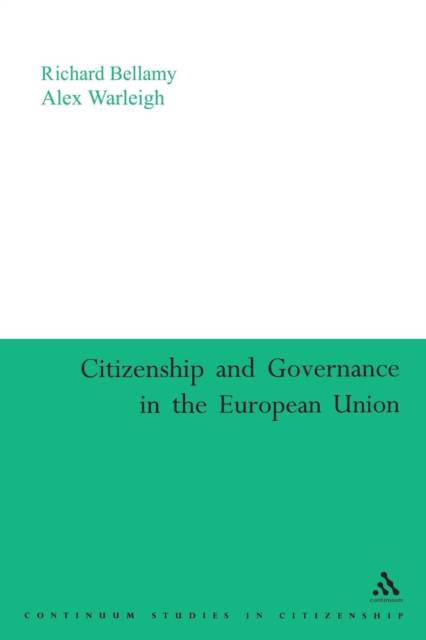
- Afhalen na 1 uur in een winkel met voorraad
- Gratis thuislevering in België vanaf € 30
- Ruim aanbod met 7 miljoen producten
- Afhalen na 1 uur in een winkel met voorraad
- Gratis thuislevering in België vanaf € 30
- Ruim aanbod met 7 miljoen producten
Zoeken
Citizenship and Governance in the European Union
€ 56,95
+ 113 punten
Omschrijving
European citizenship has been a key issue since the Treaty of Maastricht. Both governmental and non-governmental actors have seen the extension of the citizenship provisions as an important part of the drive to democratize the EU. Recent years have seen some important institutional and political developments. The Treaty of Amsterdam clarified the formal allocation of citizenship rights, emphasising the complementary nature of EU citizenship with respect to member state nationality. It also made significant changes to European citizenship as an institutionalized practice, and incorporated the Schengen agreements on freedom of movement.
European citizenship has attracted the attention of both EU and citizenship scholars. However, these groups frequently talk past each other. This book is the first to address both groups. Contributions by experts across several disciplines link citizenship not only to the Treaty provisions but also to the emerging patterns of governance in, and the policy regimes of, the EU. Normative and empirical analysis is combined to reveal the political, legal, economic and social dimensions of this new status, charting its development through the practices of both the EU institutions and its holders, EU citizens themselves. The authors argue that EU citizenship is about far more than the rights member state nationals are granted by the Treaty. It is also steeped in the policies and institutions of the Union itself and in particular their ability to engage the general public.
European citizenship has attracted the attention of both EU and citizenship scholars. However, these groups frequently talk past each other. This book is the first to address both groups. Contributions by experts across several disciplines link citizenship not only to the Treaty provisions but also to the emerging patterns of governance in, and the policy regimes of, the EU. Normative and empirical analysis is combined to reveal the political, legal, economic and social dimensions of this new status, charting its development through the practices of both the EU institutions and its holders, EU citizens themselves. The authors argue that EU citizenship is about far more than the rights member state nationals are granted by the Treaty. It is also steeped in the policies and institutions of the Union itself and in particular their ability to engage the general public.
Specificaties
Betrokkenen
- Uitgeverij:
Inhoud
- Aantal bladzijden:
- 224
- Taal:
- Engels
- Reeks:
Eigenschappen
- Productcode (EAN):
- 9780826479198
- Verschijningsdatum:
- 28/04/2005
- Uitvoering:
- Paperback
- Formaat:
- Trade paperback (VS)
- Afmetingen:
- 169 mm x 228 mm
- Gewicht:
- 344 g

Alleen bij Standaard Boekhandel
+ 113 punten op je klantenkaart van Standaard Boekhandel
Beoordelingen
We publiceren alleen reviews die voldoen aan de voorwaarden voor reviews. Bekijk onze voorwaarden voor reviews.







